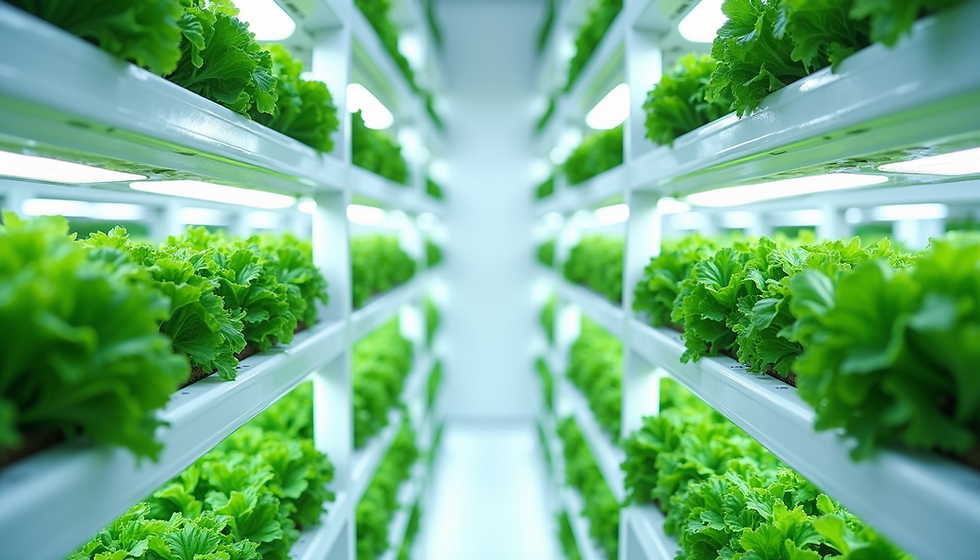Supporting Food Sustainability: Vertical Farming Explained
- marrissa walters
- Jun 27, 2025
- 2 min read
In the realm of sustainable agriculture, vertical farming has emerged as a cutting-edge solution to the challenges of traditional farming practices. This innovative method of cultivating crops in vertically stacked layers or inclined surfaces, such as in a controlled environment, is not only revolutionizing the way we grow food but also paving the way towards a more sustainable future.

Vertical farming offers a plethora of benefits that are not achievable through conventional farming methods. By utilizing indoor farming techniques and advanced technologies such as hydroponics and aeroponics, vertical farms can produce more food with significantly less water and land compared to traditional agriculture. This high efficiency in resource utilization makes vertical farming an attractive option for addressing the global issues of food scarcity and environmental degradation. One of the key advantages of vertical farming is its ability to operate year-round regardless of external weather conditions. By creating a controlled environment, vertical farms can optimize the growth conditions for crops, resulting in higher yields and faster harvest cycles. This consistent production ensures a stable food supply, reducing dependency on seasonal fluctuations and long-distance transportation. Moreover, vertical farming helps mitigate the negative impacts of agriculture on the environment. By reducing the need for pesticides and herbicides, as well as minimizing water usage and soil erosion, vertical farms promote sustainable farming practices that are essential for preserving our planet's natural resources. Additionally, vertical farming plays a crucial role in promoting food security and addressing hunger issues in underserved communities. By establishing urban vertical farms in food deserts or areas with limited access to fresh produce, we can help provide nutritious food to those in need and empower communities to take control of their food sources. As we continue to face the challenges of a rapidly growing global population and the consequences of climate change, the significance of sustainable food production practices like vertical farming cannot be overstated. It is imperative that we support and invest in these innovative solutions to ensure a more resilient and food-secure future for generations to come. Together, we can cultivate a more sustainable world through the power of vertical farming.



Comments